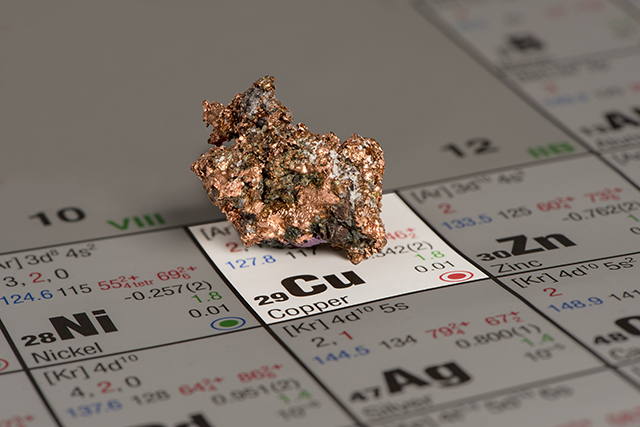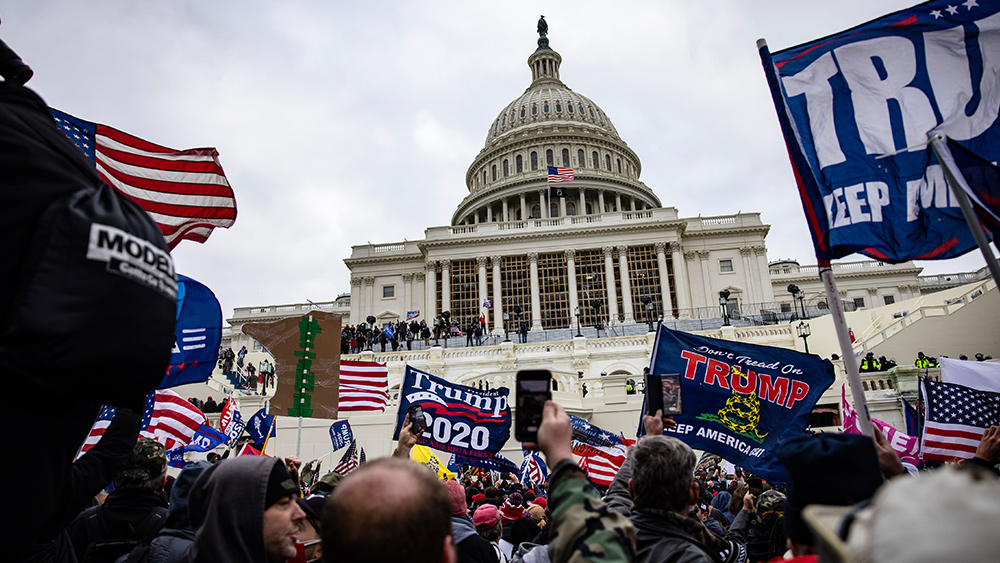Biden opposes adults mining minerals in Minnesota, but fully supports child slaves mining minerals in Africa
02/02/2023 / By Ethan Huff

Last week, the Biden regime announced a decision to protect more than 200,000 acres of land in Minnesota from mining operations, citing waterway preservation as the reason. At the very same time, Biden signed a deal with Zambia and the Democratic Republic of the Congo (DRC) to continue high-intensity mining operations in Africa, which largely rely on child slave labor.
Public Land Order 7917, signed by the Department of the Interior, blocks 225,504 acres of Minnesota land from being mined. This puts to an immediate end a nickel-copper mining proposal that had been introduced in the Midwestern state. Why, then, is it okay to continue exploiting Africa, we wonder?
Here is what Biden’s State Department said in a recent press release and associated memo of understanding about the continued U.S. partnerships with mining operations in Africa, which are needed to keep the “green” push into electric vehicles (EVs) going:
“Through this MOU, the United States will support the commitment between the Democratic Republic of Congo (DRC) and Zambia to develop jointly a supply chain for electric vehicle batteries.” (Related: The entire “green” energy industry is built on the backs of child slave labor.)
The “green” energy mining industry is also rife with pedophilia and “commercial sexual exploitation of children”
DRC, we are told, is the world’s leading producer of cobalt, accounting for more than 70 percent of global production. Zambia, meanwhile, is the world’s sixth largest producer of copper.
Both of these metals are critical for manufacturing batteries for EVs, mobile phones, laptop computers, and other electronic devices – but they come at a price: cruel child slave labor.
“Thousands of children also work in cobalt and copper mines in the southern Copperbelt region,” the Department of Labor acknowledges about conditions in DRC, adding that anywhere from 5,000 to 35,000 children work in artisanal cobalt mines.
“Prevalence of child labor is highest in the country’s artisanal and small-scale mining (ASM) sector, which operates with minimal oversight. Child labor has been detected at one in four ASM sites, with informal or illegal ASM operations leaving children uniquely exposed to hazardous working conditions and, in some instances, to forced labor.”
Concerning Zambia, the Department of Labor has further drawn attention to what it calls “illegal mining syndicates,” or “jerabo gangs.” These exist all throughout the Copperbelt province to “employ children for mining activities, including forcing children to load trucks with stolen copper ore.”
“Commercial sexual exploitation of children is common, particularly along Zambia’s borders and transit corridors.”
The “green” energy industry, in light of all this, is anything but “clean” when considering the cost to children’s lives and livelihoods. If rampant abuse, both labor and sexual in nature, has to occur in order for the latest Tesla model to hit the showroom, then something is very wrong with the industry.
“The vast majority of these minerals are located in countries where mining practices are highly-destructive,” says noted psychological researcher John Mac Ghlionn. “When and where mining occurs, the immediate environment suffers, including the residents living in the vicinity. Women and children are particularly vulnerable.”
In the comments, a Natural News reader noted that child slave labor is a problem in other industries too, including in the garment industry. This is one of the social costs of globalism in general, it turns out: rampant abuse and exploitation of the innocent and vulnerable.
“Pretty much every electronic device is produced using cheap labor,” wrote another. “Child or not, it’s how things work, sadly, and why outsourcing is very lucrative.”
More related news coverage about the dirty underbelly of the “green” energy industry can be found at GovtSlaves.com.
Sources for this article include:
Submit a correction >>
Tagged Under:
Africa, biased, Biden, big government, child slavery, Climate, cobalt, copper, corruption, deception, Fact Check, green tyranny, hypocrisy, left cult, mining, minnesota, nickel, politically correct, Public Land Order 7917, Suppressed, Twisted, White House
This article may contain statements that reflect the opinion of the author




















